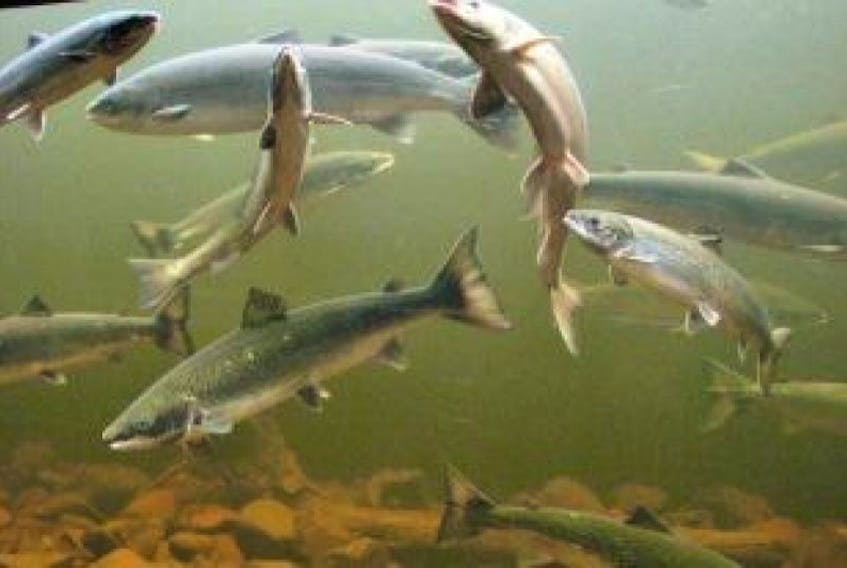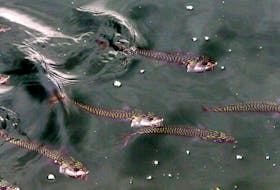In 2016, the division received 157 complaints related to illegal fishing with the majority of complaints (53 per cent) related to illegal netting, according to a news release. With public help, the division said officers laid a total of 151 fishing-related charges for such offences as netting, jigging, untagged salmon, illegal possession and illegal sale.
There was also an increase in the types of offences which have most impact salmon populations. Compared to the 2015 angling season, last season the division said itsaw a 115 per cent increase in netting violations and a 58 per cent increase in violations related to the illegal sale and/or possession of salmon.
Suspicious activity can be reported anonymously and toll-free at any time, by calling 1-877-820-0999 or Crime Stoppers at 1-800-222-TIPS. Anonymous online reports can also be submitted at www.stoppoaching.ca or www.nlcrimestoppers.com.
Meanwhile, the Atlantic Salmon Federation is asking and anglers indigenous groups to pay strict attention to catch and release practices due to concerns for the stock.
Population estimates for North American Atlantic salmon show returns in 2016 were lower than the year before and may indicate further declines in 2017, says the federation.
The federation's State of the Populations report found total estimated North American returns for 2016, including large salmon and grilse, was 533,500 individuals, a 27 per cent decrease from 2015, the group said ina news release.
Grilse, which are Atlantic salmon that return to spawn after only one year at sea, saw the greatest decrease —31 per cent lower than 2015 — the association said, adding the situation triggered a special meeting in Newfoundland and Labrador and was a factor in the decision to continue mandatory live release for anglers in New Brunswick and Nova Scotia.
The government of Greenland reported a harvest of 27 tonnes (8,400 salmon) in 2016 compared to 57 tonnes (17,700 salmon) in 2015. The quota in 2016 was set at 32 tonnes because the 2015 catch exceeded Greenland's 45 tonne quota. The quota for 2017 will once again be 45 tonnes.
“Last year's grilse and this year's two sea-winter fish went to sea at the same time,” said federation president Bill Taylor said in the release. "With grilse returns down sharply and quota left unfilled in Greenland, it suggests this year class has struggled to survive.
“We hope we're wrong about large salmon returns this year, but in light of this information anglers, people in St. Pierre and Miquelon, and indigenous groups should take steps to maximize salmon survival this year.”
Overall, anglers and indigenous groups in Canada harvested 135 tonnes of Atlantic salmon in 2016, equal to about 46,000 grilse and 12,000 large salmon.
Recreational anglers killed 69 tonnes (36,355 grilse and 1,823 large salmon), while aboriginal groups harvested an estimated 64-tonnes (about 10,000 grilse and 9,600 large salmon).









